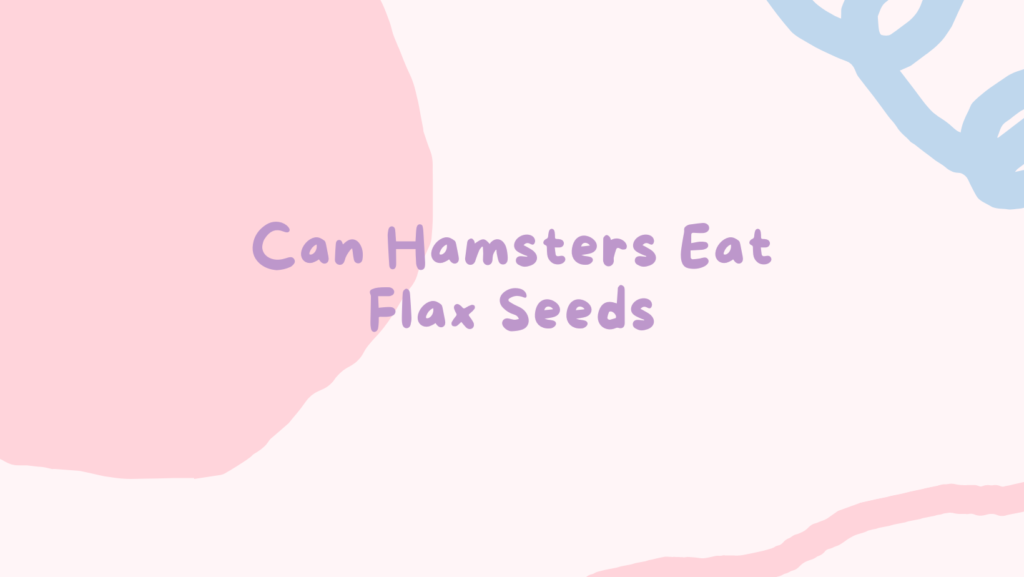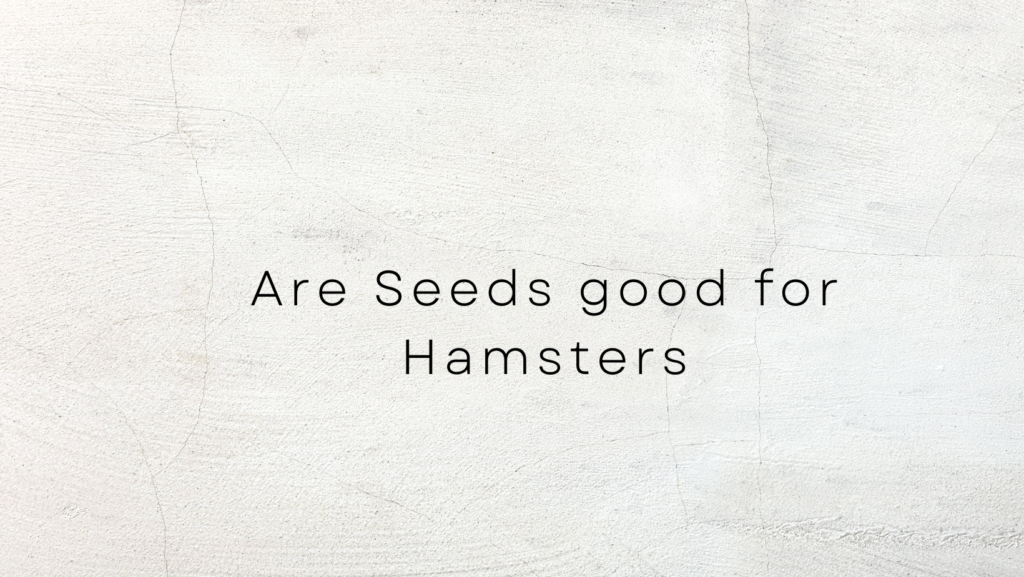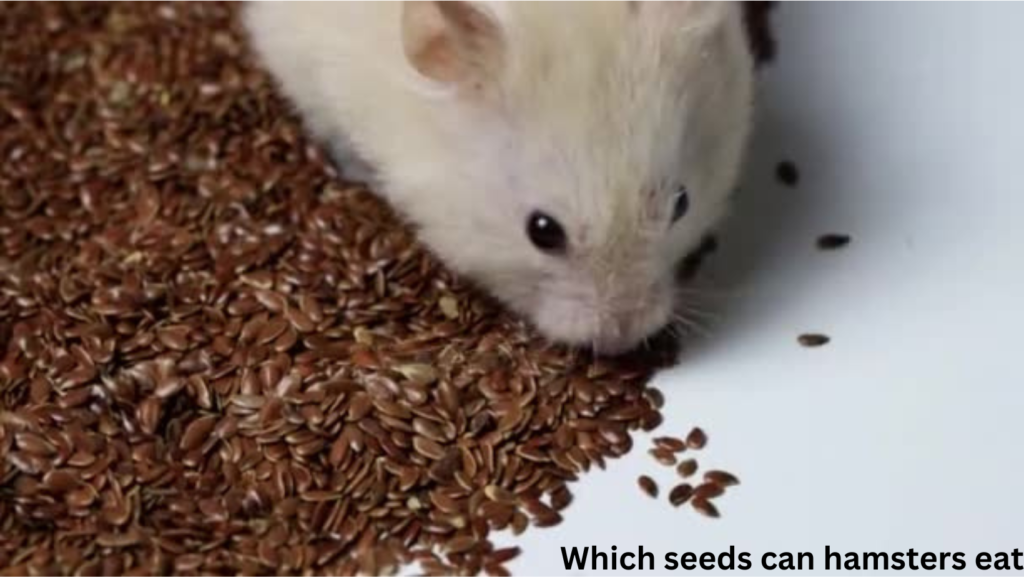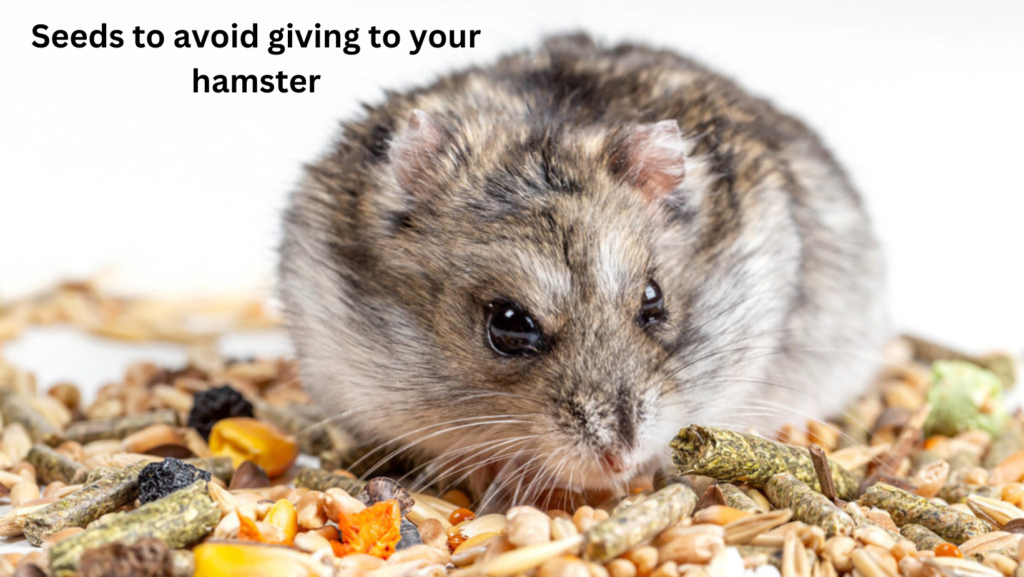Flax seeds are a type of seed that comes from the plant called Linum usitatissimum. These seeds are high in fiber and contain a type of omega-3 fatty acid called alpha-linolenic acid (ALA). Flax seeds can be fed to hamsters as an alternative source of protein and dietary fiber.
They can also be used as a natural remedy for skin disorders in hamsters.

As with any food, it is important to ensure that you are feeding your hamster a balanced diet. When feeding flax seeds, it is recommended to do so in moderation as too much flax can lead to the development of nutritional deficiencies and health complications.
Additionally, it is important to monitor your hamster’s health closely when feeding flax seeds as they may have an adverse effect on some animals’ health.
Are Seeds good for Hamsters?
Are seeds good for hamsters? The short answer is yes, seeds are a great supplement for hamster diets. They provide essential nutrients such as protein, fiber, vitamins, and minerals. Seeds can be fed whole or ground up.
However, it is a good idea to check with your veterinarian before introducing new foods into your pet’s diet. If you have any further questions about the benefits of seeds for hamsters, do not hesitate to contact a qualified animal care professional.

Which seeds can hamsters eat?
For a hamster to be healthy, it needs a balanced diet. Some seeds that can be fed to a hamster include sunflower seeds, pumpkin seeds, and sesame seeds. These seeds are high in fiber and nutrients, making them ideal for the health of a hamster’s diet.
Other types of seeds that can be fed to a hamster include dried fruit like raisins and figs. These types of seeds are high in sugar, which is important for a hamster’s health as well.
Additionally, certain types of nuts and vegetables can be fed to a hamster as part of its diet. These include things like broccoli, carrots, peas, and green beans. It is important to ensure that the type of seeds and vegetables being fed to a hamster are appropriate for its species and age.
For example, young hamsters may need different types of foods than adult hamsters.

Seeds to avoid giving to your hamster
Seeds are a very important part of a balanced diet for your hamster. However, some seeds can be harmful to your pet if fed in large amounts. Here are some seeds to avoid giving to your hamster:
- Sunflower seeds: These seeds contain high levels of oil, which can cause gastrointestinal distress and weight loss in pets.
- Alfalfa seeds: This legume contains high levels of trypsin inhibitors, which can cause poor digestion and gastrointestinal upset in pets.
- Hops: These aromatic flowers are used in the production of beer, but they can be poisonous if consumed in large quantities. They can cause seizures and even death in pets.
- Sesame seeds: These small, brown seeds contain high levels of lectins, which can cause inflammation in the gut and may lead to nutritional deficiencies.
As with any diet, it is important to ensure that you consult with your veterinarian before making any changes to your pet’s diet.
Should seeds be a large part of my hamster’s diet?

Seeds are an important part of a hamster’s diet, as they provide essential nutrients and can be beneficial for overall health. Providing your pet with seeds can help to keep its teeth and gums healthy and its digestion running smoothly.
Seeds also contain vitamins, minerals, and fiber, which can help to keep your hamster feeling satiated and full. However, it is important to ensure that you are providing your pet with a balanced diet that includes other sources of nutrition as well.
It is also a good idea to check the ingredients in any commercial food you decide to purchase for your pet, as some may include seeds or other ingredients that may not be suitable for a hamster’s diet. Overall, seeds are an important part of a hamster’s diet and should be considered carefully by owners who want to ensure their pets’ health and well-being.
Read More:
Conclusion
In summary, while hamsters can safely enjoy flax seeds in moderation, it’s crucial to consider their nutritional needs and potential health risks. These tiny seeds offer beneficial omega-3 fatty acids and fiber, making them an appealing treat. However, due to their high fat content, flax seeds should only be given occasionally.
Always focus on a balanced diet rich in fresh vegetables, high-quality pellets, and appropriate treats. Before introducing any new food, including flax seeds, to your hamster’s diet, consult with a veterinarian to ensure it aligns with their health requirements.
Remember, the health and happiness of your furry friend depend on the choices you make. By staying informed and attentive to their dietary needs, you can ensure a long and healthy life for your beloved hamster. Happy feeding!

